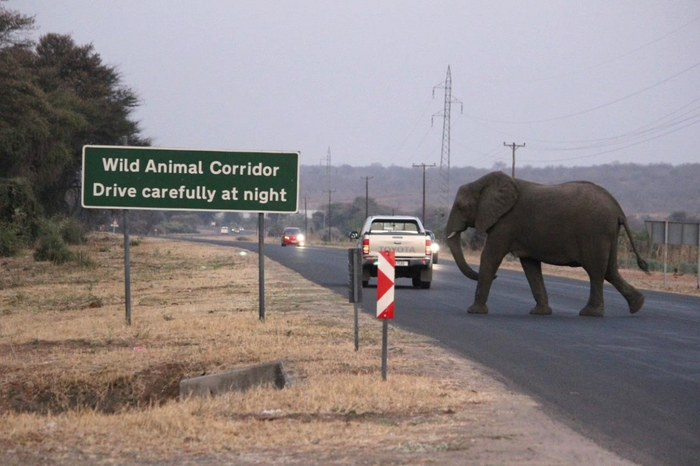The movement of elephants through wildlife corridors is directly impacted by differing forms of human pressures and development, new research by Elephants Without Borders (EWB) and Radboud University shows. Their study, published today in Frontiers in Conservation, is the first that takes an in-depth look at how varying land-use affects elephants and their use of wildlife corridors.

Credit: Picture by dr. Tempe Adams, Elephants Without Borders
The movement of elephants through wildlife corridors is directly impacted by differing forms of human pressures and development, new research by Elephants Without Borders (EWB) and Radboud University shows. Their study, published today in Frontiers in Conservation, is the first that takes an in-depth look at how varying land-use affects elephants and their use of wildlife corridors.
From 2012 to 2019, the researchers monitored elephants’ movements through six wildlife corridors using of motion-detected camera traps in two different human-dominated landscapes: the townships of Kasane and Kazungula, and the farming villages of the Chobe Enclave, both located in the Chobe District.
The study shows that various land-use seemingly affects when elephants use wildlife corridors on an hourly basis. Elephants in agricultural areas largely moved through the corridors predominantly nocturnally, when humans are less active, compared to the urban corridors, where humans and elephants actively mostly overlap.
‘This is the first study of this type that takes an in-depth look at comparing how varying land-use affects elephant movements and their use of wildlife corridors,’ states lead author Tempe Adams of EWB. Increasing human development and changes in land-use restrict wildlife’s access to resources. It also increases competition and conflict between animals and people. This is one of the largest conservation challenges facing the future of elephants in both Africa and Asia. The designation and maintenance of wildlife corridors is a fundamental wildlife management tool to allow both development and conservation to continue.
‘This was a great opportunity to link our work on examining human pressures on biodiversity at Radboud University with the conservation work being done by Elephants Without Borders,’ says Marlee Stevens, assistant professor at the Department of Environmental Science of Radboud University and one of the authors of the paper. ‘Our results show that elephants alter their behaviour in human-modified landscapes, but their response varies depending on the human disturbance.’
The study highlights the need to consider wildlife daily activity patterns in and around cities, towns, and farming areas, for conservation and environmental management planning. ‘What is truly remarkable is that we found elephants do not perceive all human development the same way, but they are adjusting their behaviours to adapt to the variations and human pressure,’ says Adams. ‘It also further highlights the need for transparent documentation of human pressure within and around protected wildlife areas, which is critical to assist in the conservation of species’.
Journal
Frontiers in Conservation Science
DOI
10.3389/fcosc.2022.872472
Article Title
Who is adjusting to whom? Differences in elephant diel activity in wildlife corridors across different humanmodified landscapes
Article Publication Date
28-Jul-2022




